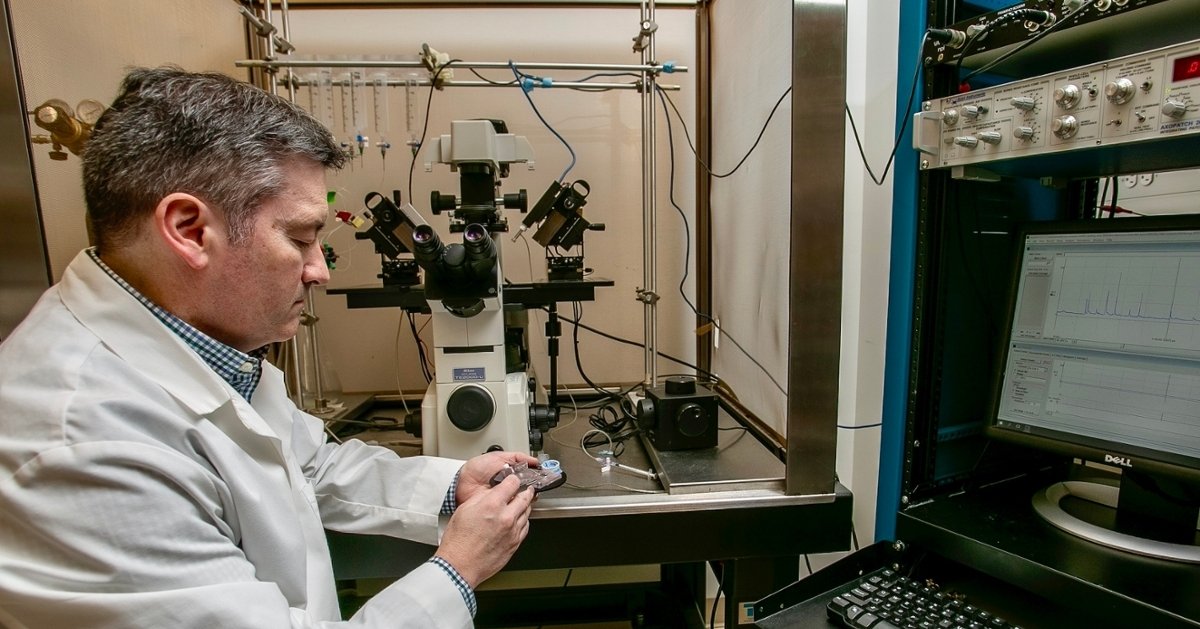Rowan among top NIH-funded institutions in New Jersey
Rowan among top NIH-funded institutions in New Jersey
April 11, 2024

Kevin Currie conducts NIH-funded research on the role of serotonin transporter (SERT) in the sympathetic nervous system and potential links with depression, anxiety and other neurological disorders.
Rowan University is among the top 10 National Institutes of Health (NIH)-funded institutions in New Jersey for fiscal year 2023. According to United for Medical Research (URM), NIH grants supported $1.32 billion in economic activity in New Jersey in 2023.
An agency within the Department of Health and Human Services, NIH is the principal biomedical research arm of the federal government; it supports medical and behavioral research throughout the United States to enhance health, lengthen life, and reduce illness and disability.
Rowan received more than $7.9 million in NIH funding for medical and behavioral research from colleges and schools across the University, including the Virtua Health College of Medicine & Life Sciences (VHC) and Cooper Medical School of Rowan University (CMSRU). Below are examples of NIH-funded research projects by Rowan researchers.
A nudge toward better health
Danielle Arigo, Ph.D., an associate professor of psychology in the College of Science & Mathematics, investigates how social comparisons can be used to encourage healthy habits, particularly physical activity. A recipient of the NIH Director’s New Innovator Award, Arigo is pursuing the next frontier in understanding how social comparisons influence people. Ultimately, she hopes her work will lead people toward better health outcomes.
Mechanisms controlling the stress response
Kevin Currie, Ph.D., professor of biomedical sciences at CMSRU, studies the cellular and molecular mechanisms that control neurotransmitter and hormone secretion. Supported by the National Institute of Neurological Disorders and Stroke, Currie investigates the role of serotonin transporter (SERT) in the sympathetic nervous system, its physiological mechanisms and potential molecular links between depression, anxiety and other neurological disorders. His work could open the door to more effective medications to treat neurological disorders.
The connection between substance use disorder and decision-making
Through studies funded by the National Institute on Drug Abuse, behavioral neuroscientist Elizabeth West, Ph.D., is building on her research on cocaine and decision-making to determine if opioids impair decision-making abilities.
West, an assistant professor at the Rowan-Virtua School of Translational Biomedical Engineering & Sciences in the Virtua Health College of Medicine & Life Sciences, is also examining whether an individual’s decision-making behavior can predict elevated opioid use. She seeks to learn more about susceptibility, vulnerability and resiliency.